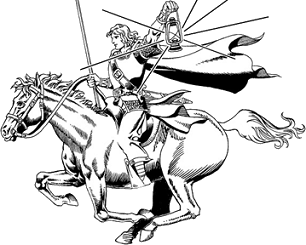Vanguard Education is centered around the learning of seven languages, two major and five minor. One of the minor languages is French.
French is the native language of many people throughout the world. Native French speakers are found in Europe, North America, South America, Africa, Asia, and the Pacific. Approximately half of the population of Africa is francophone.
French has long been the intellectual alternative, and supplement, to English. Scientific and intellectual literature around the world are generally written or translated into English or French so as to be available to the rest of the world.
People and governments who have an aversion to the English language and culture often use French as the international language. Russian and eastern European passports and government publications use their national language and French, not English.
The people of France are strongly resistant to having their language and culture eroded by English. A French citizen can be fined for using an anglicism (an English word or phrase) in a public broadcast in France. The people of France recognize that if they don't protect their heritage, they are going to lose it.
In AD 1066, William the Conqueror defeated King Harold at the Battle of Hastings. In one stroke, England became French. Modern English is an admixture of several languages, the most prominent being a German dialect known as Anglisch, and French. Knowing French, including French grammar, helps us understand older English writings, including the Bible. Perhaps you know the Christmas carol, "Joy to the world, the Lord is come." The Lord is come? Why is and not has? Because this is proper French grammar, which in the past was also proper English grammar.
The British royal family is English, not French. What is the motto on the Royal coat of arms? Dieu et mon droit.
Here are some French words and phrases used commonly in English but recognized as French: a la carte, a la mode, filet mignon, chalet, carte blanche, vis à vis, née, et cetera.
Many works of English literature assume that the reader has a knowledge of the French language. For worldwide travel today, a functionality in English, French and Spanish will allow the traveler to communicate in almost every locale.



